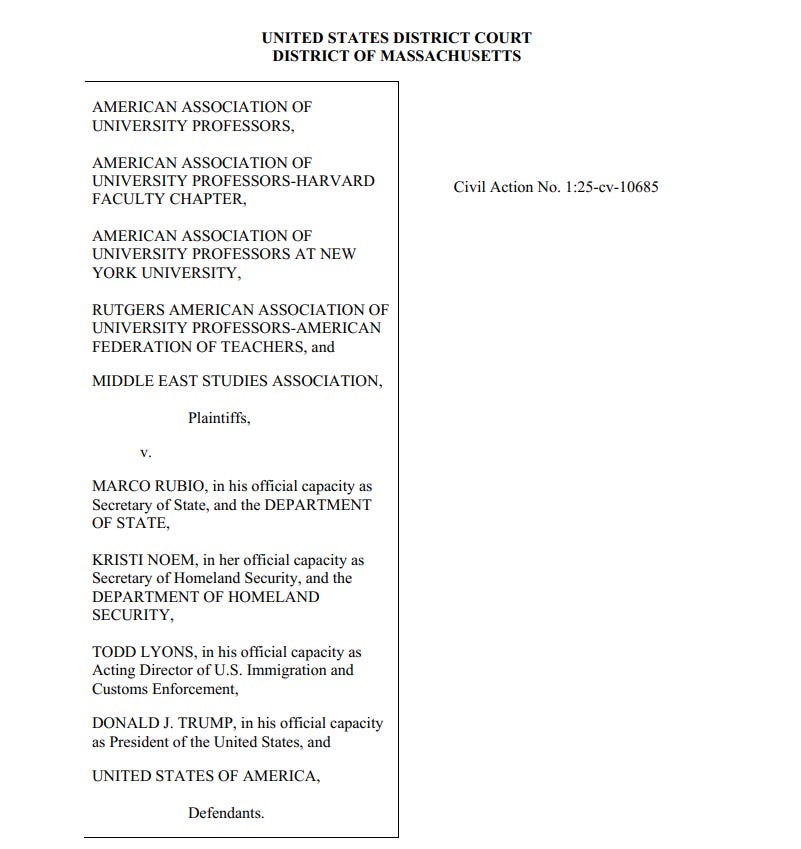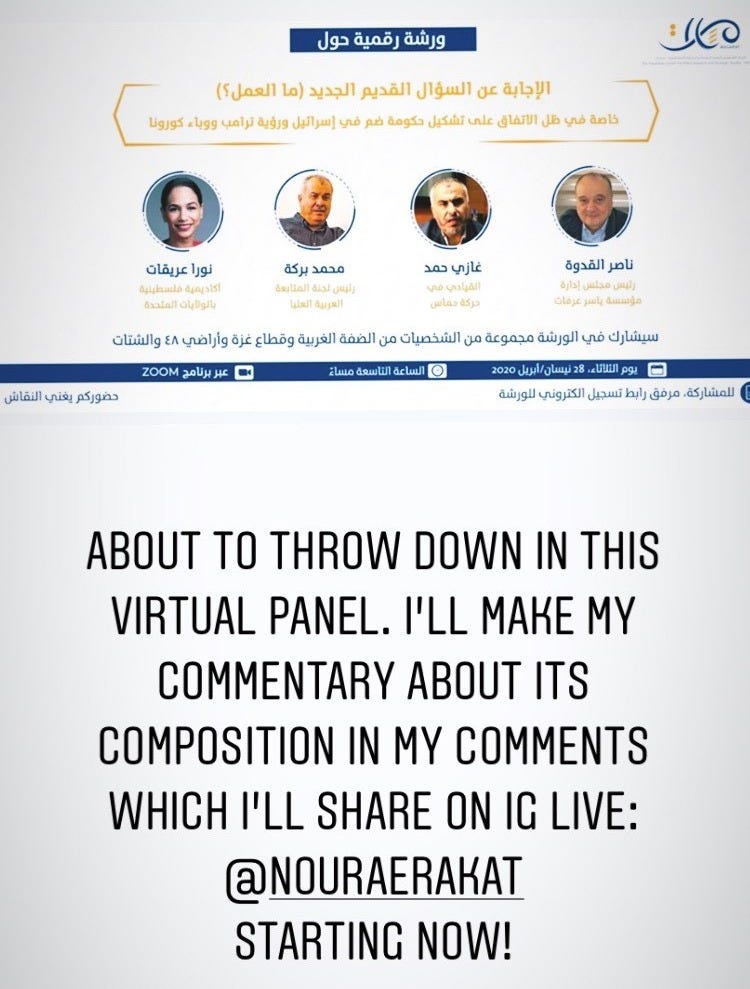Lawsuit Challenges Trump Administration's Efforts to Deport Pro-Hamas Activists
Several plaintiffs in the lawsuit are affiliated with Hamas-linked organizations and appear to have posted pro-terror propaganda
A new lawsuit filed by several academic organizations to challenge the Trump administration’s efforts to deport pro-Hamas student activists is headed to court on Monday, according to Reuters. A review of the lawsuit conducted by Jewish Onliner found that multiple plaintiffs have associations with Hamas-linked groups and have promoted pro-terror propaganda.
The case, which marks the first significant trial of President Trump's second term, focuses on the broader issue of the administration’s crackdown on foreign-born academics. The five foreign-born academics at the center of this ongoing controversy since the president enacted the policy — Mahmoud Khalil, Mohsen Mahdawi, Yunseo Chung, Rumeysa Ozturk, and Badar Khan Suri — were apprehended by the Trump administration after Secretary of State Marco Rubio declared their presence in the United States detrimental to U.S. foreign policy goals.
Among them are Mahdawi, who has allegedly made extreme antisemitic comments, including “I like to kill Jews,” and is reported to have family members with ties to terrorism, as well as Badar Khan Suri, who married into a Hamas-affiliated family and was photographed alongside former Hamas leader Ismail Haniyeh.
The lawsuit, filed in March by the American Association of University Professors (AAUP), along with its chapters at Harvard, New York University, Rutgers, and the Middle East Studies Association (MESA), argues that the deportation campaign is interfering with U.S. citizens’ rights to freely exchange ideas with foreign-born colleagues.

Conversely, in the past, legal experts such as Attorney Mark Goldfeder, Director of the National Jewish Advocacy Center, have laid out the legal framework supporting the deportation of individuals such as Mahmoud Khalil, emphasizing the statutory provisions that govern cases involving national security risks and non-citizens who endorse terrorist organizations.
Several critics have also raised concern about ostensible Hamas ties among one of the plaintiffs: Professor Noura Erakat.
Noura Erakat’s Ties to Hamas and Public Support for Violence
Noura Erakat, a professor at Rutgers University, is one of the plaintiffs' members in the case. In April 2020, Erakat participated in a webinar with Hamas leader Ghazi Hamad, which she shared on Instagram, writing, “about to throw down in this virtual panel.” Erakat also serves on the board of trustees of Euro-Med, whose current and former Board Chairs were formally designated by Israel as Hamas operatives in Europe. Her social media posts have frequently justified violence, including one made directly after Hamas’ Oct 7th attacks, where she stated, “any condemnation of violence is vapid if it does not bring Israeli apartheid, settler colonialism, and occupation.”

Plaintiffs’ Involvement in Pro-Hamas Encampment Protests
Nadia Abu El-Haj, a professor at Barnard College, is another plaintiff member in the case, known for her participation in pro-Hamas encampment protests at Columbia University. Similarly, Joseph Howley, an associate professor at Columbia University, signed a letter on October 30, 2023, which described Hamas’s attacks as a “military response” against Israel.

Concerns Surrounding the Lawsuit and Its Plaintiffs
Given that several of the plaintiffs have associations with questionable groups and have promoted pro-terror or pro-Hamas propaganda, the lawsuit itself raises significant concerns.
The plaintiffs’ involvement with organizations and individuals linked to terrorism, as well as their public support for violence, complicates the legal argument that their deportations violate First Amendment rights. Furthermore, the emphasis on protecting individuals with such associations, without addressing the potential national security risks they pose, adds further complexity to the broader implications of the case.



